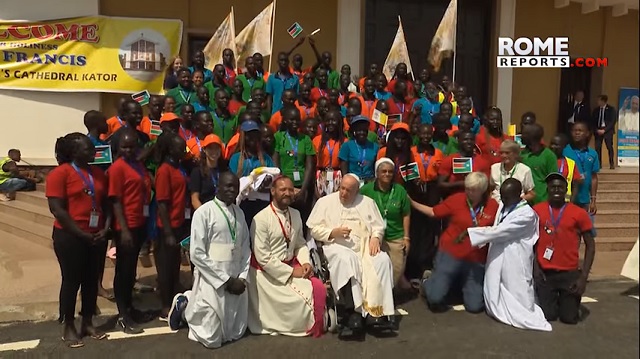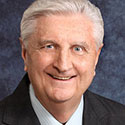Is the Pope Catholic?
By MercatorNet – Navigating Modern Complexities

The times are a bit weird when I know that I am going to get hammered by Catholics for supporting the Pope. But these are really weird times.
Here is the case against Pope Francis:
- Promoting “synodality” (Google it)
- Not supporting the underground Church in China and Cardinal Zen
- Not promoting Cardinals from rich cities where his critics live
- Sending confusing signals about LGBTQI+ folks
- Pachamama (Google it)
- The Vatican’s finances are in a mess
- Lack of due process in Vatican trials
- He insulted the late Benedict XVI by suppressing the “Latin Mass”
- Those German bishops are batshit crazy
And more.
Attentive readers will notice that many of these accusations are drawn from a memo said to have been written by the late Cardinal George Pell, of Sydney. It was published under the pseudonym “Demos” on a vaticanista’s blog in March last year. I doubt that Pell was the author, although it does echo his thinking. Perhaps it should be attributed to Pseudo-George, like manuscripts of doubtful authorship from the Middle Ages.
Cardinal Pell did denounce the Synod on synodality in The Spectator as “a toxic nightmare”. So he is rowing in the same boat as Pseudo-George. Advising the Pope without fear or favour is part of a Cardinal’s job description, although publishing his advice in The Spectator is not above reproach.
Anyhow, I am poorly informed and unwilling to controvert these points. If there is a common thread, it seems to be that Pope Francis does not have the mind of a canon lawyer. Back in the day, when times were less weird, many Catholics thought that fewer pettifogging canon lawyers would be a jolly good thing. But we have learned, painfully, that respect for the strictures of canon law does have its plusses.
To respond to all this kvetching and bitching, murmuring and muttering, denouncing and disparaging, bellyaching and sniping, all these accusations and allegations, the best I can do is two words: NightRose Falea.
NightRose Falea was one of 60 pilgrims who walked 300km (190 miles) from the city of Rumbek to the capital of South Sudan, Juba, where Pope Francis celebrated Mass for tens of thousands. NightRose told the BBC. “My feet are sore, but I am not so tired. When the spirit is with you, you do not get tired. I would not have missed coming to Juba for anything. We are here to get the Pope’s blessings. I am confident that with his blessings things will change for this country,”
She walked. She did not sit in an air-conditioned bus. The villages through which she and her companions walked were too poor to feed them, so they had to bring their own food, cooking pots, fuel, and plates.
“When you have smelled and seen death and hopelessness, then you will search for peace with all the might that you have,” another woman told the BBC. “[Pope Francis] is a prophet and whatever he prays in the next few days, while on our soil, will come to pass. Things will be different. We are going to be one people.”
Naïve? Of course. Admirably naïve. There was a time when Catholics would have been ashamed not to be as naïve as NightRose Falea. Africa is the future of the Catholic Church – of most Christian churches – so these days are going to return.
In the meantime, back in a world of air-conditioned buses with tinted windows and wifi and working toilets, shouldn’t we ask what NightRose sees in Pope Francis? We can agree – he would agree — that, like all of his recent predecessors, he has faults. Does he have any compensating virtues?
Let me cite the authority of the unnamed woman in the BBC report. Pope Francis is a “prophet”. Not the future-is-rosy kind of prophet, but a John the Baptist “yield the acceptable fruit of repentance” kind of prophet. From the very beginning of his pontificate Fancis demanded that “good Catholics” be holy Catholics. A lot of lackadaisical Catholics, it seems, were not ready for the challenge of this simple message.
Francis spoke with all the harshness of John the Baptist. After a little more than a year on the job, he gave an astonishing Christmas present to the Roman Curia – the officials who work in the Vatican. It was a list of the spiritual diseases which can afflict clerical bureaucrats. Here are some of them:
- thinking that they are immortal, immune or downright indispensable
- excessive busy-ness.
- mental and spiritual petrification
- “spiritual Alzheimer’s disease”
- rivalry and vainglory
- the hypocrisy typical of the mediocre and of a progressive spiritual emptiness which no doctorates or academic titles can fill
- gossiping, grumbling and back-biting
- The disease of indifference to others
- The disease of a lugubrious face.
- The disease of closed circles, where belonging to a clique becomes more powerful than belonging to the Body and, in some circumstances, to Christ himself.
This excoriating speech never fails to come to mind when I read the latest rant against the Pope. Read it. It’s short and scary. It’s one for the ages.
You may have heard of “the Benedict Option” for handing on the Christian faith to the next generation by forming small God-fearing communities. There are lots of “options” for saving Christianity. The “Biden Option” of truckling to every woke demand. The “Pseudo-George Option” of kicking butt. The “Cardinal Hollerich Option” of rewriting the Ten Commandments.
Francis has an “option”, too, an option for holiness, prayer, and evangelisation. From the starting gate, he has reminded people that a living Christian faith is not a badge or a tribal allegiance. The signs that it truly exists are virtues – naïve virtues like honesty, cheerfulness, service, integrity, loyalty, discretion, or mercy. These are sought in prayer and spread in evangelisation. (Cardinal Pell exemplified these in his Prison Journals.) Admittedly, these qualities are not the only ones needed to govern 1.3 billion Catholics. But without them, there’s not much point to Christian living.
Apart from footnote 351 of Amoris Laetitia, I wonder if most of his critics have actually read anything at all that he has written on holiness. Seriously. Their complaints seem to be based on tweets and the 7pm TV news.
Most of his documents for the general public have been calls to prayer and evangelisation. There’s Evangelii gaudium (2013) on the joy of spreading the gospel; Amoris laetitia (2016) on holiness in marriage; Gaudete et exsultate (2018) on the universal call to holiness; Christus vivit (2019) on vocational discernment; and most recently Totum amoris est (2022) on having a heartfelt love for God. This doesn’t count his regular Wednesday addresses which, gathered together, make up several books on prayer, on spiritual discernment, on holiness in old age, on hope, on the Mass …
These seem to have gone unnoticed by most Catholics, certainly by most Catholic critics. But they are important. As I said, I am poorly-informed and naïve, but what else does the Catholic Church have to offer the world other than holiness?
Here’s my latest thought-bubble. Converting the world is a tough gig. But Pope Francis is not alone in this.
Consider the poor Prime Minister of Japan. He recently said that his country’s low birthrate means that “Our country is on the brink of being unable to maintain the functions of society.” Japanese politicians, journalists, public servants, and academics are all scratching their heads: they don’t know how to get young people to bring new life into the world. Same thing in China, Korea, and Taiwan. The toxic ingredients of post-modernity have poisoned the wells.
All these countries are desperate for a “conversion” of their young folks. And there are no signs that they will succeed. They face extinction.
The mark of a Christian is firm confidence that “He’s got the whole world in His hands”. Christians are not going to go extinct. But there are different options for making sure this happens. Pope Francis has his own distinctive option and it fills NightRose Falea with an infectious joy. Why don’t his “sourpuss” critics join her?
AUTHOR
Michael Cook is the editor of MercatorNet. He lives in Sydney, Australia. More by Michael Cook
EDITORS NOTE: This MercatorNet column is republished with permission. ©All rights reserved.

This article is courtesy of DrRichSwier.com, an online community of citizen journalists, academics, subject matter experts, and activists to express the principles of limited government and personal liberty to the public, to policy makers, and to political activists. Please visit DrRichSwier.com for more great content.

